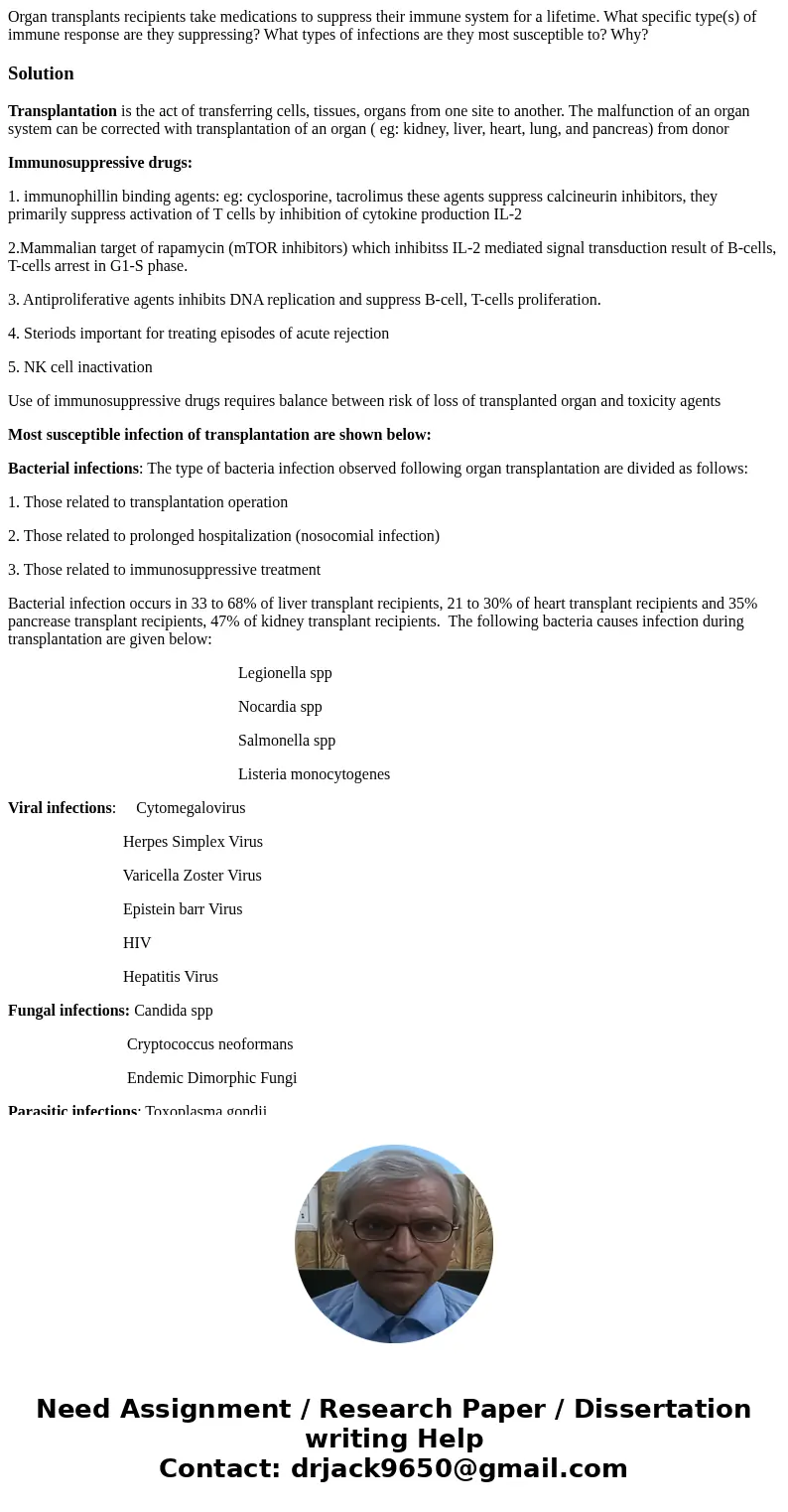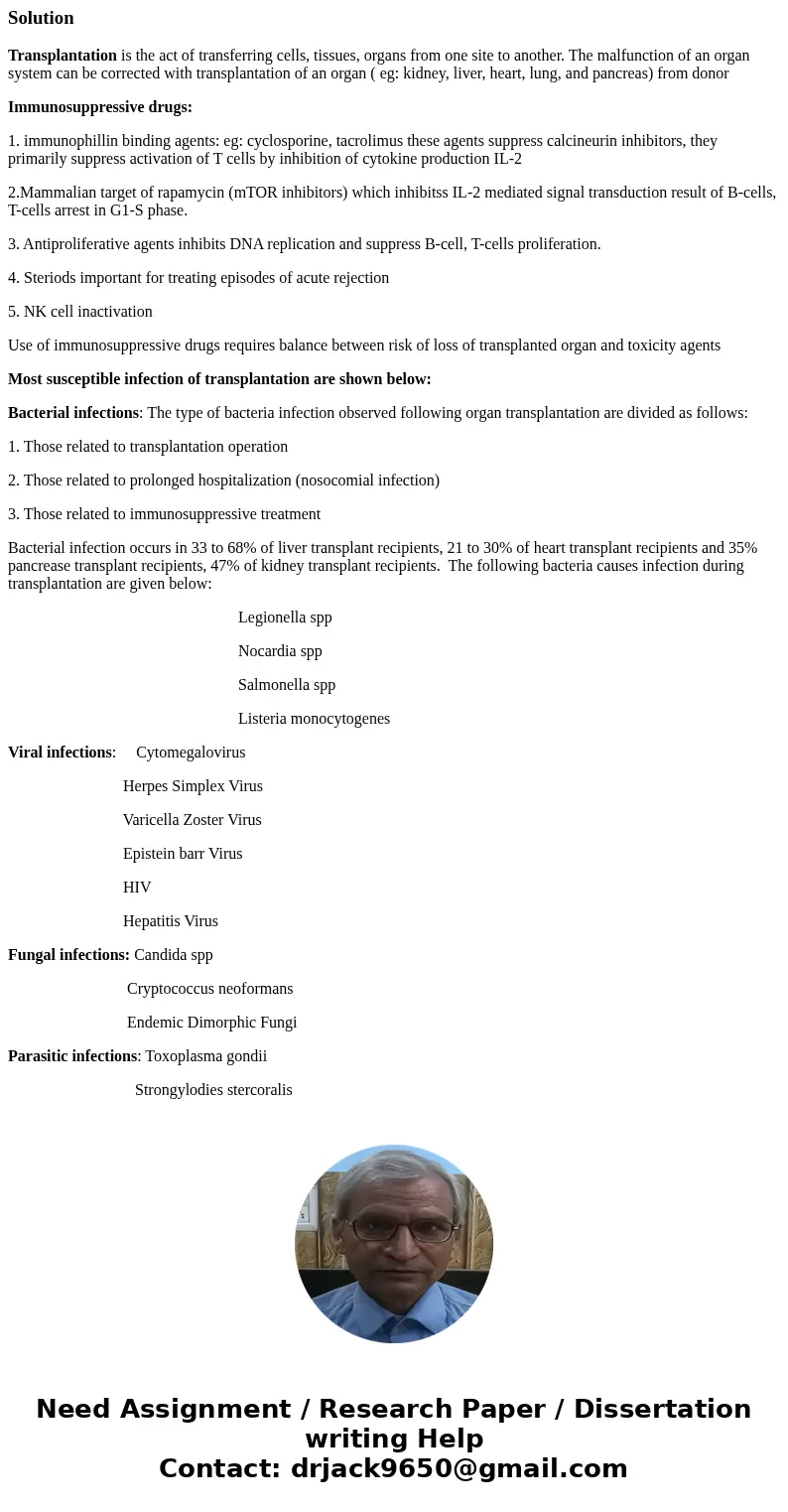Organ transplants recipients take medications to suppress th
Organ transplants recipients take medications to suppress their immune system for a lifetime. What specific type(s) of immune response are they suppressing? What types of infections are they most susceptible to? Why?
Solution
Transplantation is the act of transferring cells, tissues, organs from one site to another. The malfunction of an organ system can be corrected with transplantation of an organ ( eg: kidney, liver, heart, lung, and pancreas) from donor
Immunosuppressive drugs:
1. immunophillin binding agents: eg: cyclosporine, tacrolimus these agents suppress calcineurin inhibitors, they primarily suppress activation of T cells by inhibition of cytokine production IL-2
2.Mammalian target of rapamycin (mTOR inhibitors) which inhibitss IL-2 mediated signal transduction result of B-cells, T-cells arrest in G1-S phase.
3. Antiproliferative agents inhibits DNA replication and suppress B-cell, T-cells proliferation.
4. Steriods important for treating episodes of acute rejection
5. NK cell inactivation
Use of immunosuppressive drugs requires balance between risk of loss of transplanted organ and toxicity agents
Most susceptible infection of transplantation are shown below:
Bacterial infections: The type of bacteria infection observed following organ transplantation are divided as follows:
1. Those related to transplantation operation
2. Those related to prolonged hospitalization (nosocomial infection)
3. Those related to immunosuppressive treatment
Bacterial infection occurs in 33 to 68% of liver transplant recipients, 21 to 30% of heart transplant recipients and 35% pancrease transplant recipients, 47% of kidney transplant recipients. The following bacteria causes infection during transplantation are given below:
Legionella spp
Nocardia spp
Salmonella spp
Listeria monocytogenes
Viral infections: Cytomegalovirus
Herpes Simplex Virus
Varicella Zoster Virus
Epistein barr Virus
HIV
Hepatitis Virus
Fungal infections: Candida spp
Cryptococcus neoformans
Endemic Dimorphic Fungi
Parasitic infections: Toxoplasma gondii
Strongylodies stercoralis


 Homework Sourse
Homework Sourse